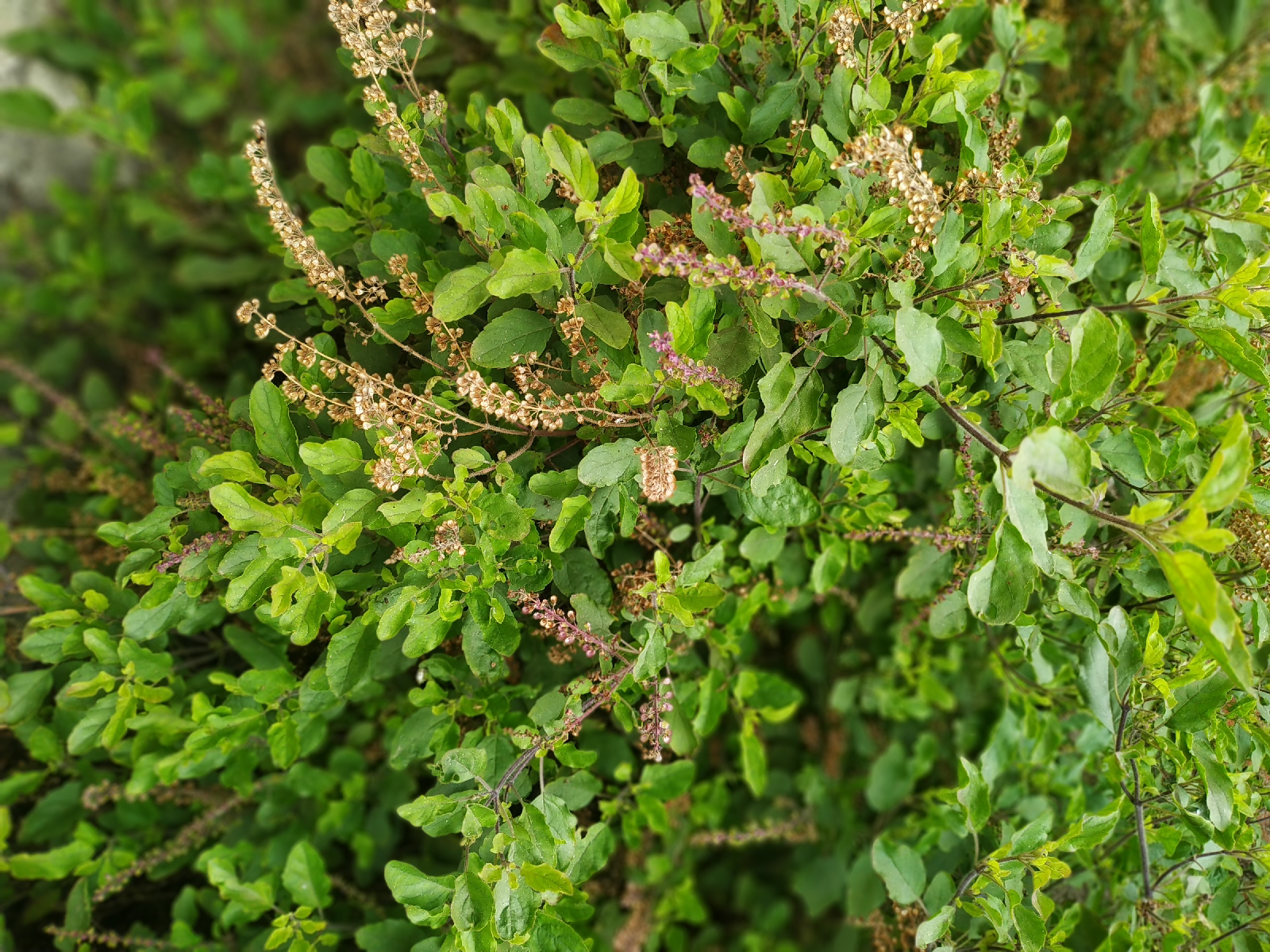Tulsi(Basil plant)
Tulsi, also known as Holy Basil, is a revered herb in Ayurvedic medicine and Hinduism. Here are some of the benefits of Tulsi:
Physical Health Benefits
1. Antioxidant properties: Tulsi has high antioxidant levels, which help protect against cell damage and oxidative stress.
2. Anti-inflammatory properties: Tulsi's anti-inflammatory compounds may help reduce inflammation and alleviate conditions like arthritis.
3. Immune system support: Tulsi is believed to boost the immune system, helping to prevent illnesses like the common cold and flu.
4. Digestive health: Tulsi may aid digestion, relieve bloating, and reduce symptoms of irritable bowel syndrome (IBS).
5. Respiratory health: Tulsi's expectorant properties can help relieve congestion, coughs, and respiratory issues like bronchitis.
Mental and Emotional Benefits
1. Stress relief: Tulsi is known to reduce stress and anxiety by promoting relaxation and calming the mind.
2. Mood enhancement: Tulsi's adaptogenic properties may help alleviate symptoms of depression and anxiety.
3. Improved focus and concentration: Tulsi is believed to enhance cognitive function, improving focus, concentration, and mental clarity.
Spiritual and Cultural Significance
1. Spiritual growth: In Hinduism, Tulsi is considered a sacred plant, believed to promote spiritual growth and self-realization.
2. Purification and protection: Tulsi is used in rituals and ceremonies to purify and protect the mind, body, and spirit.
Other Benefits
1. Skin and hair benefits: Tulsi's antioxidant and anti-inflammatory properties may help soothe skin irritations, promote healthy skin, and strengthen hair.
2. Oral health: Tulsi has been used to prevent tooth decay, reduce plaque, and freshen breath.
3. Insect repellent: Tulsi's essential oils have natural insect-repelling properties.
Overall, Tulsi is a versatile herb with a wide range of benefits, from physical and mental well-being to spiritual growth and cultural significance.
Here are some interesting and unique things about Tulsi:
Unique Characteristics
1. The Queen of Herbs: Tulsi is often referred to as the "Queen of Herbs" in Ayurvedic medicine due to its numerous health benefits.
2. Sacred Plant: In Hinduism, Tulsi is considered a sacred plant and is often worshiped as a symbol of devotion and spirituality.
3. Multiple Varieties: There are several varieties of Tulsi, including Rama Tulsi, Krishna Tulsi, and Vana Tulsi, each with its unique characteristics and benefits.
Medicinal Properties
1. Antimicrobial Properties: Tulsi has been shown to exhibit antimicrobial properties, making it effective against a range of bacteria, viruses, and fungi.
2. Anti-Cancer Properties: Some studies suggest that Tulsi may have anti-cancer properties, although more research is needed to confirm this.
3. Neuroprotective Properties: Tulsi may have neuroprotective properties, which could help prevent or treat neurodegenerative diseases such as Alzheimer's and Parkinson's.
Cultural Significance
1. Wedding Rituals: In Hindu wedding rituals, Tulsi is often used as a symbol of marriage and is exchanged between the bride and groom as a token of love and commitment.
2. Ayurvedic Medicine: Tulsi is a key ingredient in Ayurvedic medicine and is used to treat a range of ailments, from digestive issues to respiratory problems.
3. Spiritual Significance: In Hinduism, Tulsi is believed to be a manifestation of the divine and is often worshiped as a symbol of devotion and spirituality.
Fun Facts
1. Tulsi Tea: Tulsi tea is a popular herbal tea that is made from the leaves of the Tulsi plant.
2. Tulsi Essential Oil : Tulsi essential oil is extracted from the leaves of the Tulsi plant and is used in aromatherapy to promote relaxation and reduce stress.
3. Tulsi in Space: In 2019, Tulsi was sent to space as part of an experiment to study the effects of microgravity on plant growth.






Comments
Post a Comment